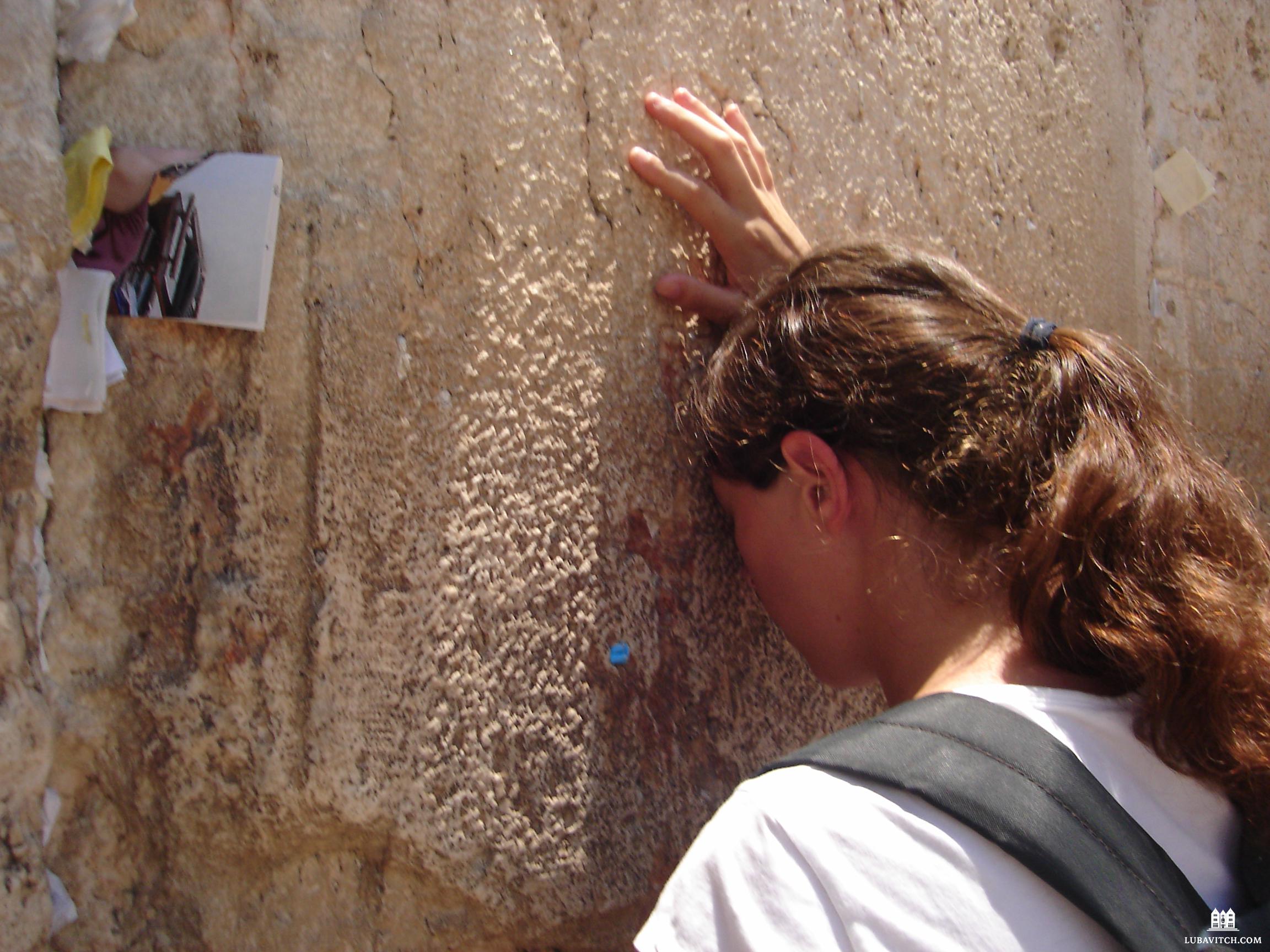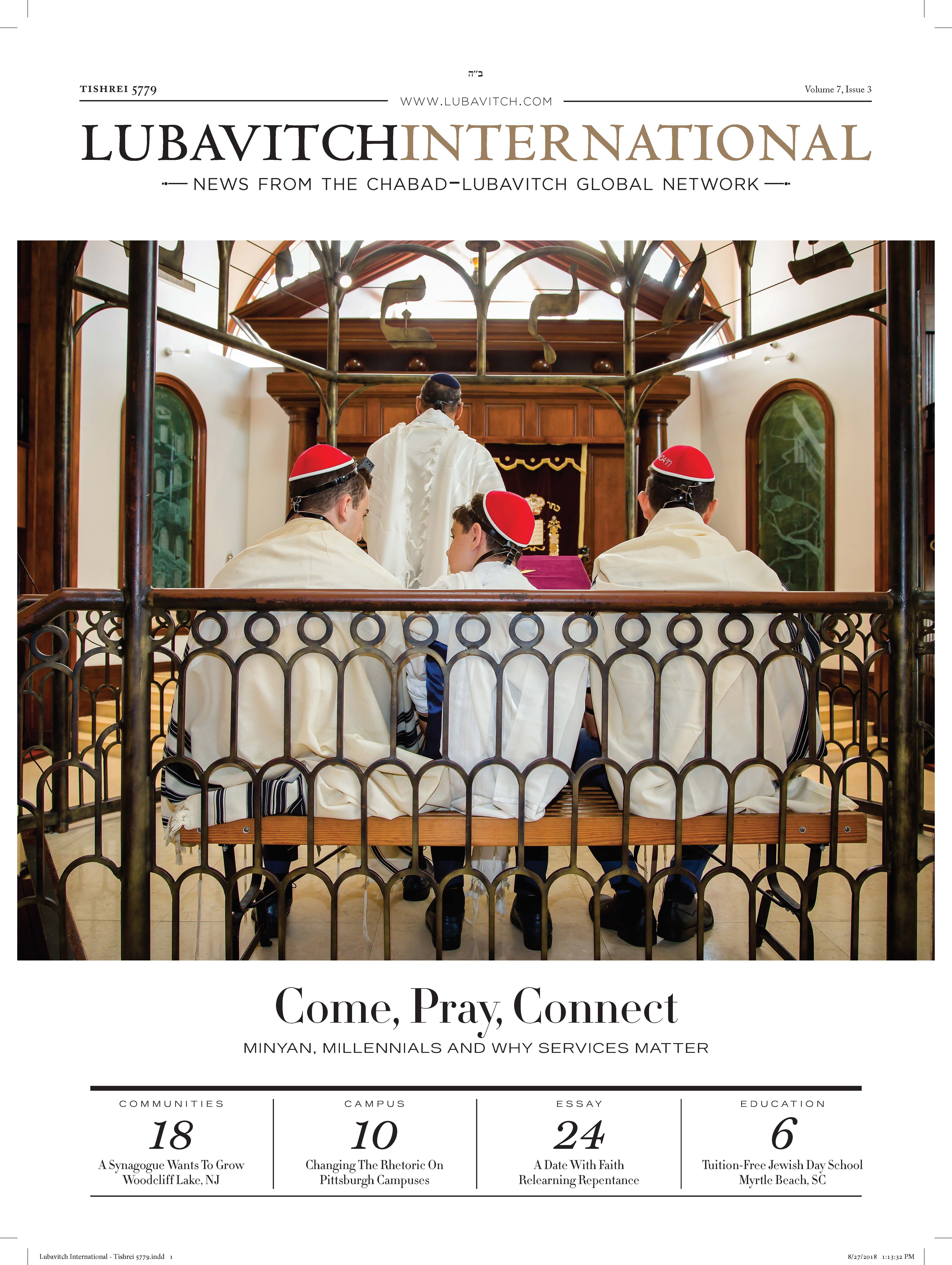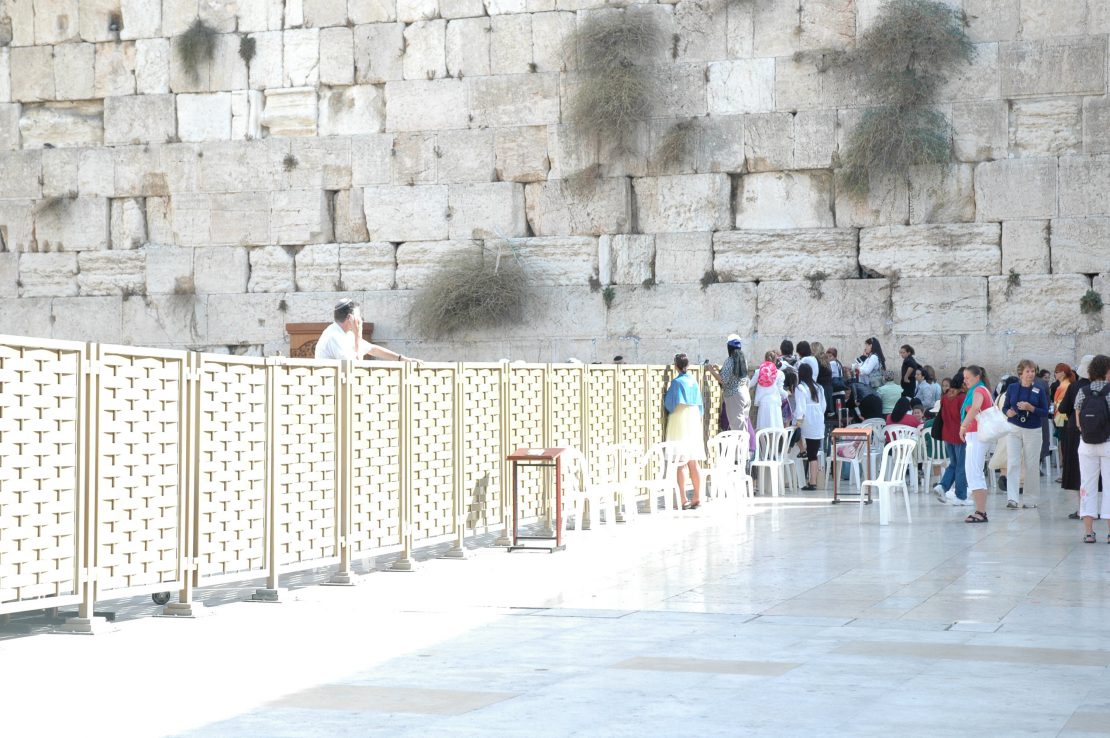Q: This time of year, when people may feel more motivated to attend synagogue for High Holiday services, the mechitzah separating the men and women sometimes becomes a sticking point. The world is evolving with more equal rights for everyone. If Chabad would accommodate mixed gender seating, it would have wider acceptance. Why don’t you adopt this practice to better fit with the times?
A: You are right that Chabad is interested in meeting Jews wherever they are and making our services, programs, and amenities as accessible to the widest range of participants as possible.
If you are familiar with who we are, you probably know that people are attracted to our centers and programs because what we have to offer is authentic. Further, it is presented in a non-condescending way, and there is no lowering of expectations.
Let’s begin by agreeing that a synagogue is not a community center without the pool. While we might attend synagogue for various reasons, such as wanting to connect with community and socialize—perfectly fine motivations—in truth, the synagogue is supposed to be a house of prayer.
What is prayer? It’s serious business in the Torah and halachah. It is called avodah sheb’lev—service of the heart—and it requires effort, concentration, and practice. This is something we tend to forget, focusing instead on the cantorial renditions and the enjoyability factor of the services. But in fact, prayer is a way for us to connect with the Divine on the most authentic and soulful level. How? For that, we have laws that dictate how we ought to conduct prayers. These laws are a means for us to achieve avodah sheb’lev.
For instance: a person may not pray in front of a photograph, painting, mirror, or window. All of these would be distractions from avodah sheb’lev, service of the heart. In fact, a person may not kiss their child or anyone else in a synagogue; they are there only to “kiss” G-d. So too, the genders are separated so that they do not distract one another from the serious work at hand. In my own experience, some of my most soulful prayer has been at home in private. In terms of synagogue attendance, I have found that praying in a new synagogue with few familiar faces allowed me the opportunity to truly be alone with G-d and less distracted by friends and acquaintances.
The mechitzah then is not a slight against women. It is there to facilitate focus in prayer. It is a testament to the importance of prayer, human nature, and the Torah’s practical way of addressing the natural tension that exists between men and women. Because, despite the new-age denial of gender differences, Judaism continues to see males and females as distinct and different, easily distracted by one another. Therefore, it delineates separateness as it deems appropriate. Prayer is one such instance, and even when we pray as part of a congregation, men and women do so separately.
 A woman praying at the Western Wall in Jerusalem
A woman praying at the Western Wall in Jerusalem
As an aside, I will say that just as surely as our quest for fairness and equal opportunity for all people has brought great benefit, it has also spawned and led to a good measure of confusion. We are beginning to learn the hard way that equality and sameness are not synonyms, just as distinction does not in all, or even in most cases mean discrimination. Leveling all differences leads to chaos more often than to equitability.
That said, the need for men and women to pray in separate areas does not mean that the women’s section should be treated as an afterthought. While women do not have the same halachic requirement as men to pray in a formal setting, women’s participation in the services still matters a great deal to us. The women’s area should thus be designed thoughtfully to encourage and facilitate comfortable participation. It needn’t be smaller than the men’s section, farther from the Holy Ark, or have worse acoustics than than the men’s side. In fact, I would say that not making a real effort to make prayer comfortable and accessible to both genders is a trespass of Jewish law as much in letter as in spirit.
Wherever you find yourself praying this holiday season, I hope you feel the warm embrace of G-d. May you and your loved ones be blessed with a sweet and blessed new year.
—Rivkah Slonim
Rivkah Slonim is the educational director at the Rohr Chabad Center for Jewish Student Life at Binghamton University. She is the editor of an anthology, Bread and Fire: Jewish Women find G-d in the Everyday.
 This article and more like it can be found in the Sept. 2019 issue of Lubavitch International. Click here to subscribe.
This article and more like it can be found in the Sept. 2019 issue of Lubavitch International. Click here to subscribe.

Be the first to write a comment.